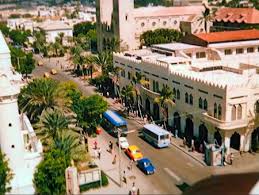From 1992, the UN and other international organizations entered Somalia on a supposed mission to lessen the impact caused by the eruption of the civil war a year earlier, in 1991.
In the beginning, most of the local staff who worked with the organizations mentioned above were mainly Siad Bare regime civil service officials, academics, other experienced individuals in institutional work, and so on.
The headquarters of the UN and other organizations were installed in Nairobi, Kenya, for supposed reasons of stability, the widely spoken English language in the country, access to financial services, etc.
I witnessed this as a young man in the middle of the 1990s when I started working with UNDP (United Nationals Development Program) in Bosaso City, in Puntland state of Somalia. The work and professionalism of the recent arrivals from Mogadishu were amazing and they were in charge of everything involved in the humanitarian work in that part of Somalia. They were ones making the real decisions regarding the target projects, places of activities, and so on.
The international staff were there to follow the local professionals’ guidance and suggestions rather than other way around.
I learned then, the value of the work the qualified locals can do to advance the work of the International organisations in the country and the leadership lessons that they were passing on to the young local staff members like me and those from the outside.
As the time went by and the civil war continued, the experienced professionals and other important individuals either retired, died, or immigrated from the country to seek refuge somewhere safe abroad like the US, Canada, other African countries, or Europe.
How UN and International NGOs in Somalia behave now?,
So, in the last 15 years and so, what has unfortunately conspired for Somalia and Somali society has been the appearance of UN and so called international NGOs relying on a less educated young Somalis that have no reference to any experienced elder professionals to show them how to conduct themselves and deliver for the people and the donor partners.
The result of this less reliable workforce in the country has created a new layer of UN and international NGOs staff members, mainly composed of other young European, American, or other African staffers, to oversee the local staff in the field offices of the UN and other organisations scattered around the country and to become de facto decision makers, in Somalia, side-lining any meaningful local input.
The young, inexperienced foreign staff members, combined with less experienced local staff, created an impossible circle of superiority and subordination where the decision making of the locals became unwelcome.
Furthermore, the main picture of the overall decision making processes is one where everything is handled through emails and instructions sent between staff in Nairobi and foreign ones in the field offices in Somalia. The only work for the locals became to follow the orders contained in those emails and to do whatever is needed without any insight or input from them. It is just a dismissive subordination approach to the entire local community.
Hence, no wonder that the UN and other international organizations have nothing impactful to show for their efforts in Somalia for the last 30 years. The only widespread, well-known phenomenon in that situation is the rampant corruption that exists throughout the country.
The corruption perpetrated by UN and other NGOs stems from the absence of central coordination mechanisms led by in part by strong local well educated professionals, Somali central or regional governments.
To conclude, the prolonged anarchy in Somalia that has not be seen anywhere else that similar civil wars broke out, caused the forgetfulness of any decency and morals among those international staff members and their masters in Nairobi or in New York.
This needs to change if Somalia is to survive in the 21th century where weak and directionless people and states can not exist as a nation and there is no expectation such state to revive its rightful place as an independent country.
Siyad Ali Yusuf

